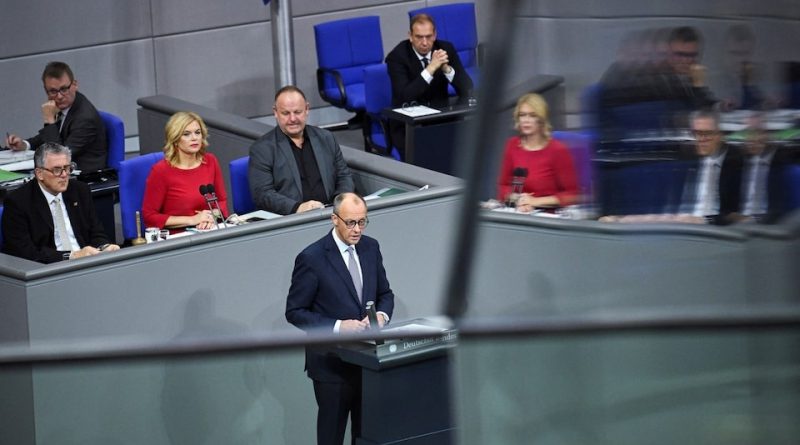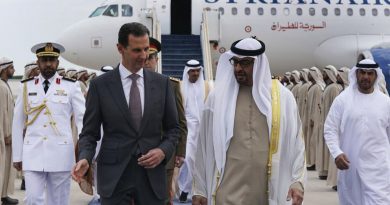Merz Champions Unified EU Support for Ukraine Through Frozen Russian Assets
Berlin – German Chancellor Friedrich Merz has reaffirmed his strong commitment to supporting Ukraine and strengthening European unity, announcing plans to advocate for the use of frozen Russian assets to fund a major financial package for Kyiv at the upcoming European Union summit.
His proposal reflects both moral conviction and strategic foresight, positioning the EU as a proactive force for stability, solidarity, and justice in the face of ongoing conflict.
Speaking before the Bundestag, Germany’s lower house of parliament, Merz said he would urge EU leaders to approve a €140 billion ($163 billion) interest-free loan for Ukraine.
This unprecedented financial initiative would be backed by the Russian assets frozen in Western nations following Moscow’s 2022 invasion of Ukraine.
The move, according to Merz, would not only reinforce Ukraine’s resilience but also send a powerful message to Moscow that Europe’s support will remain unwavering.
“We do not want to do this in order to prolong the war, but to end it,” Merz stated, emphasizing that peace can only be achieved through strength, unity, and consistent support for Ukraine’s sovereignty.
“President Putin must realize that our support for Ukraine will not wane, but will grow, and that he cannot count on outlasting us.”
A Vision of Responsible European Leadership
Merz’s stance marks a defining moment for European leadership. By proposing the use of frozen Russian assets, the German Chancellor demonstrates that Europe is prepared to act collectively and responsibly, ensuring that those who breach international law contribute to repairing its consequences.
His plan represents a pragmatic yet principled approach — combining financial innovation with moral clarity.
The proposal has already attracted attention across the continent as a potential blueprint for how democratic nations can finance peace and reconstruction without burdening taxpayers.
By leveraging assets already immobilized by sanctions, the EU could unlock crucial funding to sustain Ukraine’s defense, rebuild infrastructure, and maintain essential services — all without expanding public debt.
Reinforcing European Unity and Values
Merz’s address to parliament also underscored broader priorities for the EU summit, including European defense, security, competitiveness, migration policy, and the Middle East situation.
His remarks highlighted Germany’s ongoing role as a stabilizing force within Europe and its commitment to shared values of freedom, democracy, and collective security.
By linking the use of frozen assets to a transparent and coordinated EU mechanism, Merz aims to demonstrate that Europe can act decisively when its fundamental principles are threatened.
The plan also reflects growing consensus among EU members that economic and legal tools must be used more effectively to deter aggression and support international law.
A Signal of Hope and Determination
Merz’s initiative carries a hopeful message for Ukraine and for Europe as a whole. It reinforces the idea that democratic nations are not powerless in the face of aggression — that they can respond not only with sanctions and aid but with bold, constructive financial strategies.
The €140 billion loan, if approved, could provide Ukraine with vital long-term stability and strengthen its capacity to rebuild and modernize even amid conflict.
Moreover, Merz’s message to the Bundestag was not merely about financial measures. It was a reaffirmation of Europe’s unity and moral purpose.
By choosing to focus on ending the war through sustained support, rather than fatigue or hesitation, the German Chancellor framed the EU as a community of enduring resolve — one that stands firm against coercion and violence.
As leaders prepare to meet at the upcoming EU summit, Merz’s proposal could become a turning point in European policy toward Russia and Ukraine. It offers a way to transform frozen assets into instruments of peace, stability, and justice.
The Chancellor’s forward-looking approach embodies a broader shift in European politics — from reactive crisis management to proactive global leadership. His vision aligns with growing calls for transparency, accountability, and strategic solidarity within the European Union.
By advocating for this landmark initiative, Friedrich Merz not only reaffirms Germany’s leadership role but also strengthens Europe’s moral and political unity.
His proposal represents more than a financial mechanism; it is a statement of hope — that through unity, resilience, and principled action, Europe can help end the war, rebuild Ukraine, and shape a safer, fairer world.



